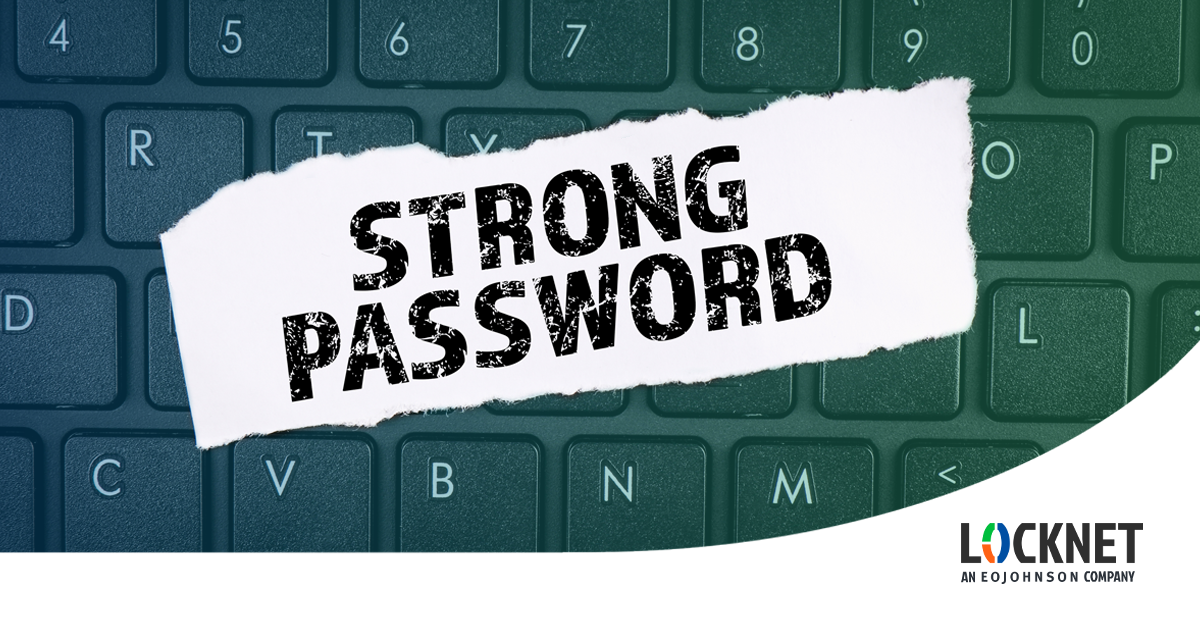Industries We Serve
World Class IT Support & Service
Real People. Right Now.
About Locknet® IT Services
From the first hello, the Locknet® team is dedicated to serving you and your needs.
Real People. Right Now.
From the first hello, the Locknet® team is dedicated to serving you and your needs.


Updated April 14, 2024
Passwords are the first line of defense against cyber threats. However, the prevalence of data breaches underscores the importance of creating strong, memorable passwords. In this blog, we'll explore the importance of creating strong, memorable passwords in the workplace and delve into strategies for crafting them effectively. Additionally, we'll fill you in on how hackers guess passwords so you can empower your employees and bolster your organization's cybersecurity posture.
The ramifications of compromised passwords extend far beyond an employee’s individual accounts. A breach can lead to unauthorized access to sensitive company data, financial losses, and reputational damage. Therefore, it's imperative for employees to understand how to create strong, memorable passwords to safeguard company assets and maintain trust with clients and stakeholders.
When creating passwords, there are some best practices to keep in mind that will give the hackers a headache and keep your information safe.
By understanding how hackers guess passwords, employees can better appreciate the importance of robust password practices and recognize potential vulnerabilities. Here are some common methods hackers employ:
Hackers guess passwords by systematically trying all possible combinations. Longer, more complex passwords significantly increase the time and resources required for a successful brute force attack.
Hackers utilize software that systematically checks words from dictionaries or commonly used password lists. Employees should understand the importance of avoiding simple dictionary terms and instead using unique combinations to thwart attacks.
Hackers may attempt to guess passwords based on information obtained from social media profiles or other sources. Encourage employees to be cautious about sharing personal information online and to avoid using easily guessable information in their passwords.
Hackers trick individuals into divulging their passwords through deceptive emails or websites. Stress the importance of verifying the legitimacy of websites before entering login credentials.
Strong passwords are a foundational element of cybersecurity best practices, but there are other tools you can add to your toolbox to keep your company safe.
The security of sensitive information in the workplace hinges on the strength of passwords and the vigilance of employees. By understanding how to create strong, memorable passwords and understanding how hackers guess passwords, organizations can significantly enhance their cybersecurity posture. Empower your workforce to be proactive guardians of workplace security by adopting robust password practices and remaining vigilant against emerging threats. Together, we can fortify our workplace defenses and safeguard valuable assets from cyber criminals.
Partner with a managed IT provider like Locknet to assess your organization’s current security posture and tighten any gaps with cybersecurity awareness training, password management resources, and multifactor authentication tools.
Cybersecurity

Onalaska, WI Waterloo, IA Wausau, WI Eau Claire, WI Burnsville, MN
You are now leaving locknetmanagedit.com. Please check the privacy policy of the site you are visiting.